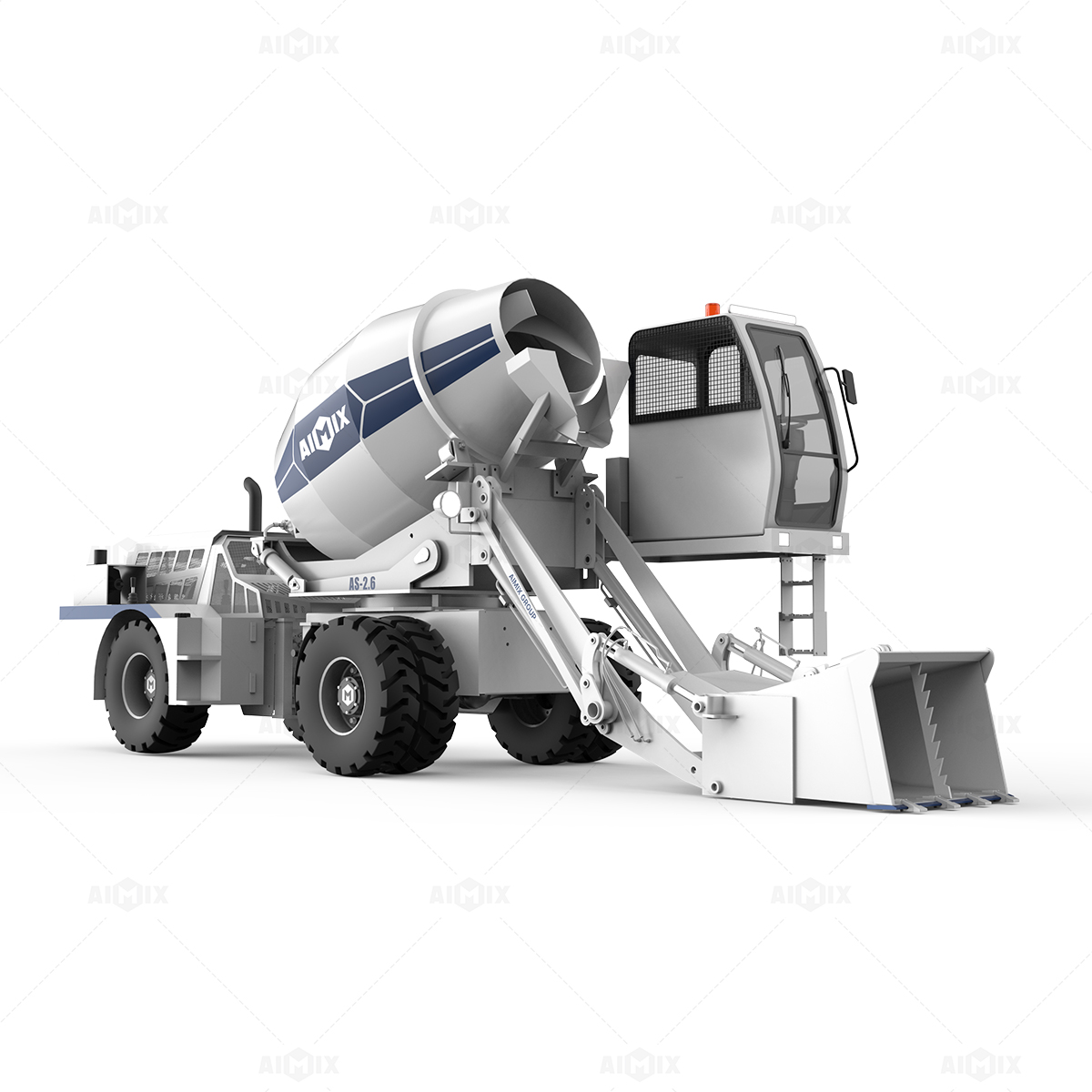
In modern construction projects, the efficiency and adaptability of heavy equipment are key factors that directly affect project duration and cost. As an important machine in the construction supply chain, concrete mixer trucks require innovative designs to cope with the various challenges brought by different construction environments. Highly flexible designs, such as the AS-2.6 2.6 cubic meter self-loading concrete mixer truck, enable contractors to optimize their workflow even in harsh environments such as narrow urban sites and rugged terrain.

The core of the mixer truck's high level of maneuverability lies in the combination of chassis design and tire technology. The AS-2.6 model features an articulated chassis - an articulated frame that enhances maneuverability in tight spaces common in cities and on narrow construction sites. This design reduces the turning radius by up to 35% compared to rigid chassis trucks, allowing operators to easily navigate narrow alleys and restricted site entrances.
Complementing this are heavy-duty OTR tires designed for off-road traction and stability. These tires maintain excellent grip on a variety of surfaces, including muddy, uneven or loose gravel roads common in remote or developing regions. Recent field test data shows that trucks equipped with these tires can reduce skidding incidents by approximately 40%, which directly reduces downtime and improves operational safety.
In addition to maneuverability, efficient concrete pouring is also crucial to project success. The AS-2.6 concrete mixer truck features a unique 270-degree rotating drum design that increases the flexibility of pouring operations. Unlike traditional 180-degree rotating drums, the larger rotation angle enables precise positioning of the discharge chute without repositioning the entire vehicle, thus simplifying the pouring process.
Experience shows that this design can reduce task completion time by up to 25%, especially in complex formwork construction or multi-point pouring operations. Its rotation function greatly reduces the need for repeated vehicle adjustments, while reducing fuel consumption and operator fatigue.

Case studies from multiple construction sites in Henan Province demonstrate the practical benefits of the AS-2.6 truck design. In urban infill projects with limited access, operators reported a 30% reduction in operating time due to the articulated frame and engineering tires. In infrastructure construction involving irregular terrain, the truck maintained stable traction and reduced delays caused by ground conditions by 15%.
In addition, the 270-degree rotating mixing drum helps speed up concrete pouring on complex construction sites, reducing the average pouring cycle from 12 minutes to less than 9 minutes. These efficiency improvements significantly save labor and shorten project management time.
Articulated chassis technology, advanced engineering tires and a 270-degree rotating mixing drum provide an effective solution to overcome operational limitations in a changing construction environment. The AS-2.6 self-loading concrete mixer truck fully demonstrates how thoughtful high-flexibility design is directly related to higher pouring efficiency and stronger on-site adaptability.
The AS-2.6 offers a compelling value proposition for global construction companies seeking a reliable, versatile mixer truck to improve workflow and reduce project delays. By investing in equipment designed to handle dynamic jobsite challenges, companies can safeguard productivity and maximize return on capital expenditure.
Request a detailed demonstration or technical consultation today to explore custom solutions for your specific project needs.
Contact Sales Now
